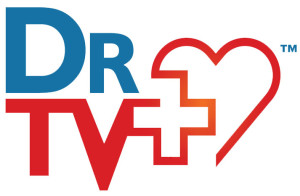Are you experiencing heart palpitations, shortness of breath, fatigue and discomfort around your heart? You could be experiencing atrial fibrillation (AF or AFib), the most common heart rhythm disorder. Recognizing signs and symptoms is essential to early diagnosis and effective treatment.
Affecting about three million Americans, AF is a rapid heartbeat, which can lead to poor blood flow and increased risk of serious conditions, including stroke and heart failure.
AF is the result of abnormal electrical impulses, which travel chaotically throughout the upper chambers of the heart, causing the atria to contract so quickly the heart loses its ability to pump efficiently. This may cause blood to pool in the heart, where it can clot. If a clot travels to the brain, it can cause a stroke. A recent study by researchers from Boston University found that people with AF are nearly five times more likely to have a stroke.
“All types of patients of all ages should monitor heart rate and blood pressure regularly, and seek medical help when they don’t feel well. Even short bursts of palpitations may be the beginning of persistent or chronic AF,” says Dr. Leo Polosajian, an electrophysiologist and founder of Cardiac Rhythm Specialists in Reseda, CA.
Unfortunately, many AF patients don’t experience symptoms until an event happens.
“While biking my normal route, my heart rate rose and I couldn’t breathe. I pretty much went into sudden cardiac death,” says Todd Smiland, a patient of Polosajian’s. “Luckily the ambulance made it to me in seven minutes and they were able to defibrillate me back to life, essentially. That pretty much started all of my heart issues.”
By correcting abnormal conduction fibers in the heart through ablation, its electrical system may be repaired and the heart may return to a normal rhythm. One of the newest innovations uses contact force ablation technology, which gives physicians a real-time, objective measure of force applied to the heart during the procedure.
“I felt this patient was an ideal candidate for an ablation procedure instead of medication, which only treats symptoms. When patients don’t respond to medication or it’s not an optimal therapy option, I turn to radiofrequency ablation,” says Polosajian.
“It was like night and day,” says Smiland, who after receiving ablation treatment, resumed activities he previously enjoyed.
According to Polosajian, Smiland’s experience may not represent those of all patients, but a recent FDA review found ablation had at least a 47 percent greater success rate than medication.
“This patient’s experience is what all physicians hope to achieve,” says Polosajian.
It’s important to note there are risks and potential adverse events associated with ablation procedures, including but not limited to cardiovascular related complications, such as hematoma, effusion and infection. Contact force ablation may not be appropriate for patients who have had certain recent heart surgeries, prosthetic valves, active systemic infection or have undergone other major vascular procedures. Patients should consult with their physicians about options.
A checklist of questions to ask your doctor can be found at www.sjm.com/AfibAnswers, a site provided by St. Jude Medical, a leader in technologies that treat atrial fibrillation.
Know the signs and symptoms of AF and talk to your doctor, if you suspect anything is amiss.
(StatePoint)



